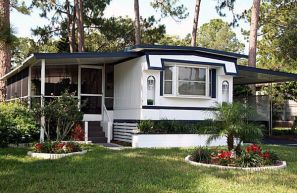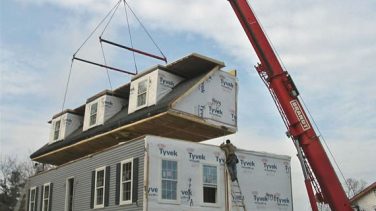5 Secrets to Buying the Best House for Your Money
 1. Get “Pre-Approved” – Not “Pre-Qualified!”
1. Get “Pre-Approved” – Not “Pre-Qualified!”
Do you want to get the best property you can for the least amount of money? Then make sure you are in the strongest negotiating position possible. Price is only one element in the negotiations, and not necessarily the most important one. Often other terms, such as the strength of the buyer or the length of escrow, are critical to a seller.
In years past, I always recommended that buyers get “pre-qualified” by a lender. This means that you spend a few minutes on the phone with a lender who asks you a few questions. Based on the answers, the lender pronounces you “pre-qualified” and issues a letter you can show to a seller. Sellers are aware that such letters don’t mean too much because none of the information has been verified!
Many times unknown problems can come to the surface. Some of the problems I’ve seen include recorded judgments, alimony payments due, glitches on the credit report due to any number of reasons both accurately and inaccurately, down payments that have not been in the client’s bank account long enough, etc.
So the way to make the strongest offer today is to get “pre-approved.” This happens AFTER all information has been checked and verified. You are actually APPROVED for the loan and the only loose end is the appraisal on the property. This process takes anywhere from a few days to a few weeks depending on your situation. It’s VERY POWERFUL and a weapon I recommend all my clients have in their negotiating arsenal.
2. Sell Your Property First, Then Buy the House 
If you have a house to sell, sell it before selecting a house to buy. Contingency sales aren’t nearly as strong as one that comes in with a ready, willing and able buyer. Consider this scenario: You’ve found the perfect house – now you have to go make an offer to the seller. You want the seller to reduce the price and wait until you sell your house. The seller figures that this is a risky deal, since he might pass up a buyer who DOESN’T have to sell a house while he’s waiting for you. So he says OK, he’ll do the contingency but it has to be a full price offer! You have now paid more for the house than you could have because of the contingency, and you have to sell your existing house in a hurry, otherwise you lose the house. So to sell quickly you might take an offer that’s lower than if you had more time. The bottom line is that buying before selling might cost you THOUSANDS of dollars.
If you’re concerned that there is not a house on the market for you, then go on a window-shopping trip. You can identify possible houses and locations without falling in love with a specific house. If you feel confident after that then put your house on the market.
Another tactic is to make the sale ”subject to seller finding suitable housing.” Adding this phrase to the listing means that WHEN YOU DO FIND A BUYER, you will have some time to find the new place. If you don’t find anything to your liking, you don’t have to sell your present home.
 3. Play the Game of Nines
3. Play the Game of Nines
Before house hunting, make a list of things you want in the new place. Then make a list of the things you don’t want. You can use this list as a guide to rate each property that you see. The one with the biggest score wins. This helps avoid confusion and keeps things in perspective when you’re comparing dozens of homes.
When house hunting, keep in mind the difference between ”STYLE AND SUBSTANCE”. The SUBSTANCE of a house are things that cannot be changed such as the location, view, size of lot, noise in the area, school district, and floor plan. The STYLE represents easily changed surface finishes like carpet, wallpaper, color, and window coverings. Buy the house with good SUBSTANCE, because the STYLE can always be changed to match your tastes. I always recommend that you imagine each house as if it were vacant.
Consider each house on its underlying merits, not the seller’s decorating skills.
4. Don’t Be Pushed Into Any House 
Your agent should show you everything available that meets your requirements. Don’t make a decision on a house until you feel that you’ve seen enough to pick the best one.
A decade ago, homes were selling quickly, usually a few days after listing. In that kind of market, agents advised their clients to make an offer ON THE SPOT if they liked the house. That was good advice at the time. Today there isn’t always this urgency, unless a home is drastically underpriced– and you’ll know if it is.
Don’t forget to check into the SCHOOL DISTRICTS of the area you’re considering. Information is available on every school; such as class sizes, % of students that go on to college, SAT scores, etc.
5. Stop Calling Ads!
Please note – ads are sometimes created to make the agent’s phone ring! Many of the homes have some drawback that’s not mentioned in the ad, such as traffic noise, power lines, or litigation in the community. What’s not mentioned in the ad is usually more important than what is.
For this reason, I want you to be very careful when reading ads. Remember that the person writing the ad is representing the seller and not you. The most important thing you can do is have someone on your side looking out for your best interests. Your own agent will critique the property with an eye towards how well it meets your needs and will point out any drawbacks you should know about. So whether you decide to work with me or not, pick an agent you feel comfortable with and enlist the services of that agent as a buyer’s broker. Then you become a client with all the rights, benefits, and privileges created by this agency relationship, and you’re no longer just a shopper. Did you know that many homes are sold WITHOUT A SIGN ever going up or an AD EVER BEING PUT IN THE PAPER? These “great deals” go to those people who are committed to working with one agent. When an agent hears of a great buy, who do you think he’s going to call? His client, who he has a legal obligation to work hard for you, or someone who just called on the phone and said “keep your eyes open”? So to get the best buy on a property, I always recommend that you hire your own agent and stick with him or her.
Read Full Post »
 It is believed this dignified shingled home (now used as a local shop) on Second and Mulberry Streets in Lewes is the oldest in Delaware. Built by early Dutch settlers (after the destruction of the ill-fated Zwaanendael colony,) it has been dated to 1665 through wood boring analysis taken from beams used in the structure. This residence is known to have been standing on its present site in l685. At one time, this home was a colonial inn, and this is the house to which Ryves Holt came in 1721 (and subsequently purchased in 1723) when he arrived at Port Lewes. Holt (1696-1763) became the Naval Officer of the Port and was at one time the Sussex County High Sheriff. Along with other appointments and offices, Holt was made the first Chief Justice of the Supreme Court in The Three Lower Counties on the Delaware River in 1745 and served in this capacity until his death. After Ryves death, Commodore Jacob Jones lived in the house. Following the death of his mother, his father married a daughter of Ryves Holt. Commodore Jones won acclaim when his ship WASP captured the more heavily armed British warship Frolic during the war of 1812.
It is believed this dignified shingled home (now used as a local shop) on Second and Mulberry Streets in Lewes is the oldest in Delaware. Built by early Dutch settlers (after the destruction of the ill-fated Zwaanendael colony,) it has been dated to 1665 through wood boring analysis taken from beams used in the structure. This residence is known to have been standing on its present site in l685. At one time, this home was a colonial inn, and this is the house to which Ryves Holt came in 1721 (and subsequently purchased in 1723) when he arrived at Port Lewes. Holt (1696-1763) became the Naval Officer of the Port and was at one time the Sussex County High Sheriff. Along with other appointments and offices, Holt was made the first Chief Justice of the Supreme Court in The Three Lower Counties on the Delaware River in 1745 and served in this capacity until his death. After Ryves death, Commodore Jacob Jones lived in the house. Following the death of his mother, his father married a daughter of Ryves Holt. Commodore Jones won acclaim when his ship WASP captured the more heavily armed British warship Frolic during the war of 1812. Tired of waking up with matted and tangled hair? Do you end up with more hair in your brush or bathroom sink than on your head? There really is a simple solution to decrease those nasty little hair knots and dryness that leave your perfectly coiffed hair less than admirable.
Tired of waking up with matted and tangled hair? Do you end up with more hair in your brush or bathroom sink than on your head? There really is a simple solution to decrease those nasty little hair knots and dryness that leave your perfectly coiffed hair less than admirable. morning as more and more of your hair ends up in the sink. You may think it’s just the natural aging process, and of course some of it is, but there’s a way to slow down the hair loss problem.
morning as more and more of your hair ends up in the sink. You may think it’s just the natural aging process, and of course some of it is, but there’s a way to slow down the hair loss problem.
 shower each day. We tend to wash and condition our hair, then dry. Best to stay away from heat drying when possible. When we rinse out after showering, we also rinse out the conditioner, leaving our hair unprotected and often times looking dry and lifeless. Spritz a bit of leave-in conditioner after showering and maybe even a bit at night before turning in.
shower each day. We tend to wash and condition our hair, then dry. Best to stay away from heat drying when possible. When we rinse out after showering, we also rinse out the conditioner, leaving our hair unprotected and often times looking dry and lifeless. Spritz a bit of leave-in conditioner after showering and maybe even a bit at night before turning in. English claimed land in 1700 by George Pierce, and ultimately acquired by Pierre duPont in 1906,
English claimed land in 1700 by George Pierce, and ultimately acquired by Pierre duPont in 1906,  Each year and with each season, Longwood Gardens continues to delight visitors of all ages and from all over the world. With a nearly $50,000,000 annual budget, 1300 employees, students, and volunteers, Longwood is a special treat to those that visit and work there.
Each year and with each season, Longwood Gardens continues to delight visitors of all ages and from all over the world. With a nearly $50,000,000 annual budget, 1300 employees, students, and volunteers, Longwood is a special treat to those that visit and work there. as a destination garden spot to ensure continued enjoyment for generations to come. This holiday season, Longwood again celebrated in it’s usual fashion with lights, sites, and sounds. If you are a horticultural enthusiast or just love a grand garden, then Longwood Gardens should be your go-to place.
as a destination garden spot to ensure continued enjoyment for generations to come. This holiday season, Longwood again celebrated in it’s usual fashion with lights, sites, and sounds. If you are a horticultural enthusiast or just love a grand garden, then Longwood Gardens should be your go-to place. A mobile home, manufactured home, and a Class-C home all start out the same way. They are built in a factory on a metal structured frame. The distinction between a mobile home and a manufactured home is only in the year in which it was built. Any built prior to June 15, 1976 is referred to as a mobile home, and those built after that date are referred to as manufactured homes. The exact same model home could be built on the same assembly line, but the one built on June 15, 1976 would be called a mobile home, and the one built on June 16, 1976 would be
A mobile home, manufactured home, and a Class-C home all start out the same way. They are built in a factory on a metal structured frame. The distinction between a mobile home and a manufactured home is only in the year in which it was built. Any built prior to June 15, 1976 is referred to as a mobile home, and those built after that date are referred to as manufactured homes. The exact same model home could be built on the same assembly line, but the one built on June 15, 1976 would be called a mobile home, and the one built on June 16, 1976 would be referred to as a manufactured home. Mobile homes and manufactured homes are both regulated by the Housing and Urban Development (HUD) division of the federal government. With a mobile home or a manufactured home, each is delivered with an identifying tag, not unlike your automobile. If the home happens to be a double-wide home, then there are two tags; one for each half. A mobile home and a manufactured home are considered personal property, just as your automobile is and a DMV title is provided showing ownership.
referred to as a manufactured home. Mobile homes and manufactured homes are both regulated by the Housing and Urban Development (HUD) division of the federal government. With a mobile home or a manufactured home, each is delivered with an identifying tag, not unlike your automobile. If the home happens to be a double-wide home, then there are two tags; one for each half. A mobile home and a manufactured home are considered personal property, just as your automobile is and a DMV title is provided showing ownership. Now, there is a special classification, referred to as a class-C home. A class-C manufactured home is one in which the DMV title has been surrendered, the wheels and tongue have been removed, and the home has been permanently fixed to a foundation, just as if it had been built on the spot. Once a manufactured home has the designation of being a class-C home, it is then considered real property and not personal property. If you are considering a class-C home, always be sure the owner has followed through with surrendering the DMV title. It may be on a permanent foundation, but if they did not surrender the title, the county will still considered it to be a manufactured home.
Now, there is a special classification, referred to as a class-C home. A class-C manufactured home is one in which the DMV title has been surrendered, the wheels and tongue have been removed, and the home has been permanently fixed to a foundation, just as if it had been built on the spot. Once a manufactured home has the designation of being a class-C home, it is then considered real property and not personal property. If you are considering a class-C home, always be sure the owner has followed through with surrendering the DMV title. It may be on a permanent foundation, but if they did not surrender the title, the county will still considered it to be a manufactured home. The real confusion lies with a modular home. Many people confuse a manufactured home (and class-C homes) with a modular home. They equate the two as being the same, and they are not. A modular home is a stick built home, but built in a factory in modules, or sections. Modular homes must conform to International Residential Codes (IRC) standards the same as if a bundle of wood was delivered to a building site and erected. A modular home is delivered by truck, the modules put together, and set on its permanent foundation. The roof trusts are then installed. Modular homes are considered real property as soon as it is affixed to the foundation. In many ways, a quality built modular home can be better than an on-site stick built home since the construction process is all under roof with temperature controlled environments. Costs can be held down since all materials are available at the factory, and labor cost are held down as well.
The real confusion lies with a modular home. Many people confuse a manufactured home (and class-C homes) with a modular home. They equate the two as being the same, and they are not. A modular home is a stick built home, but built in a factory in modules, or sections. Modular homes must conform to International Residential Codes (IRC) standards the same as if a bundle of wood was delivered to a building site and erected. A modular home is delivered by truck, the modules put together, and set on its permanent foundation. The roof trusts are then installed. Modular homes are considered real property as soon as it is affixed to the foundation. In many ways, a quality built modular home can be better than an on-site stick built home since the construction process is all under roof with temperature controlled environments. Costs can be held down since all materials are available at the factory, and labor cost are held down as well. When selling a home, most sellers want to know, how fast will it sell? While there’s no certain way to know for sure, but there is a way to determine what market data indicates when it should sell. This market data is referred to as absorption rate. Always ask your Realtor what the absorption rate is for your neighborhood. (This can be a good clue to you if your Realtor® really has their finger on the pulse of your market.)
When selling a home, most sellers want to know, how fast will it sell? While there’s no certain way to know for sure, but there is a way to determine what market data indicates when it should sell. This market data is referred to as absorption rate. Always ask your Realtor what the absorption rate is for your neighborhood. (This can be a good clue to you if your Realtor® really has their finger on the pulse of your market.) neighborhood. Let’s say there are 10 homes on the market right now. Then select a time reference; let’s say 12 months. Take the number of homes sold in the past 12 months and divide by 12. That’ll give you the average number of homes that sell in a 30-day period. Take that 30-day average and divide by the number of active homes on the market. That result is the absorption rate.
neighborhood. Let’s say there are 10 homes on the market right now. Then select a time reference; let’s say 12 months. Take the number of homes sold in the past 12 months and divide by 12. That’ll give you the average number of homes that sell in a 30-day period. Take that 30-day average and divide by the number of active homes on the market. That result is the absorption rate. So, for our example of there being 10 homes for sale in your neighborhood, and let’s say there were 24 homes that sold in the past 12 months, then following our equation; 24÷12= 2 homes sold every month (as an average.) Now, take the 10 homes on the market and divide by 2. Your answer is 5, so in this case it should take 5 months to sell your home. And the rate is 20%, meaning 20% of the homes will sell every month.
So, for our example of there being 10 homes for sale in your neighborhood, and let’s say there were 24 homes that sold in the past 12 months, then following our equation; 24÷12= 2 homes sold every month (as an average.) Now, take the 10 homes on the market and divide by 2. Your answer is 5, so in this case it should take 5 months to sell your home. And the rate is 20%, meaning 20% of the homes will sell every month.

 1. Get “Pre-Approved” – Not “Pre-Qualified!”
1. Get “Pre-Approved” – Not “Pre-Qualified!” 
 3. Play the Game of Nines
3. Play the Game of Nines 









